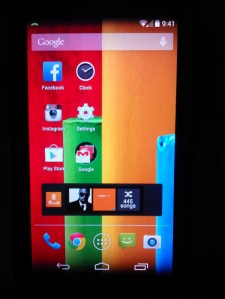I was laid off from my day job a few weeks ago, and so were four of the five coworkers in my department. Now, suddenly, we have all found each other on LinkedIn. We are recommending each other’s work and making up words for the skills our boss took for granted. Savvy people are on LinkedIn all the time, even when they are employed, but we all had to resurrect our accounts from graves of various depths. We are not savvy people; we are English nerds of the highest order. Book people.
So I have a barely-updated LinkedIn account and I’m thrilled to have a new website, too, but I’m not always sure how to talk about it. Every time I do so I mean to say something grateful and happy, because that’s genuinely how I feel. The new site does feel more like home; it makes me want to write, and write well; I am proud and excited about it. But I worry intensely about it nonetheless. If the Internet is a layer on all of our lives, my layer is a piece of paper with too much glue: it wrinkles, smudges, sticks to my fingers when I try to smooth it out, and never, ever lies snugly next to the other layers.
People get really irritated when someone preaches about the evils of technology, so I’m not here to do that. The Internet does plenty of wonderful things, from informing you about stuff you’re afraid to ask about, to fostering very real connections between people. That’s the thing, though, isn’t it? It does that stuff just often enough to keep us all dripping it into our veins for hours every day; and the hope of providing something like that to someone else keeps most of us contributing to the stream. Photos. Words. Videos. Links. drip. drip. drip.
The Internet, then, has given us all an audience to manage. Precious few of us have ever run a PR campaign or even a Glee Club quarterly newsletter, but now we are broadcasting to hundreds or thousands. We post so Grandma can see baby pictures. We post so Mike From High School will change his mind. And we post, most of us, most of the time, for the Monopoly money of little hearts and thumbs-up. drip. drip. drip.
If you’re not promoting a business or whatever, you might not think about all this in very analytical terms. I hear people say my phone has taken over my life or I feel like I have a big responsibility to interact on social media or Facebook makes me anxious or I’m not sure whether to post pictures of my kid, but aside from quitting social media entirely, we rarely have tools for answering these questions very well. One reason: our phones and our networks are designed to make us feel like the center of the universe. But that leaves us confused when the universe turns out to be so very far beyond our control. By contrast, social media consultants and Instagram stars have a lot fewer of these dilemmas, in large part because they are focused on two things.
First, they know their goals. For businesses, bloggers, and Instagram celebs, those little hearts and thumbs aren’t Monopoly money, and they’re not adrenaline shots or personal validation stickers. They’re real gold: engagement with their posts translates into dollars. Maybe the things you want from social media are a little less measurable than theirs, but it’s still worth it to write them down. Every time you log on, you’re seeing content from people who have identified what they want you to do and invested a lot in getting you to do it. Even if it’s something as simple as a refreshing coffee-break distraction or a glimpse into your friends’ lives, shouldn’t someone occasionally be checking in on your priorities? This coffee break isn’t refreshing anymore can be a powerful realization.
Once a social media master knows what they are aiming for, their Internet choices become a lot more objective: these people need a better picture of the universe if they’re going to succeed. Their second focus, then, turns from being the center of the universe to cultivating an obsession with their audience. At its worst, this turns into tailoring every moment of your own daily life to others’ tastes. But at its best, the question who am I posting this for? can bring clarity. Your audience isn’t yourself—if you just want to save something, there might be a better place you can remember and access it later. And your audience isn’t your sworn enemies—they’re never going to admit you are right or feel chastened by your successes. You probably don’t have the time or the headspace to interact with them and the people who actually like you.
There’s one final thing the consultants likely won’t tell you. To succeed on the Internet, yes, you have to know your audience. But to be happy on the Internet, love your audience. Be a giver. Be a liker. Be yourself. Pray for your (political) enemies. Give out the recipe.
Don’t let this love be a shallow thing. Let it be wise. Know when to share the strong words, and when to tell it slant. Know the difference between #grateful and #gloating. Be vulnerable, by all means; but NO ONNNNNE needs a picture of your (literal or figurative) open wounds.
Most consultants won’t tell you to love your audience; it won’t get you attention through manufactured controversy and it won’t get you dollars that people shouldn’t spare. Maybe love isn’t really even what this stuff is designed for. But maybe, I’m realizing, we each have layers we’ll always have to wrestle into the contours of a love-shaped life.


 My irritation, though, was not only with the sighs of neeeeed inspired by the coffeemakers in people who, weeks or months earlier, had been quite content not to own a thing they hadn’t imagined existed. Nor was it only with the inferior (but outrageously expensive) coffee produced, the bizarre noises that seem to be necessary for the Jetsons-like effect of the process, or the ecological disaster that is the unrecyclable K-cup. Rather, I have come to realize what my initially almost-unexplainable discomfort with the Keurig’s popularity really reveals: the Keurig, like any tool or technology, is the physical instantiation of a whole mess of assumptions. In this case, they’re assumptions about machines, about humans, and even about coffee which, to my mind, make the Keurig the culmination of the entire phenomenon called “late modernity”. Here are a few of them:
My irritation, though, was not only with the sighs of neeeeed inspired by the coffeemakers in people who, weeks or months earlier, had been quite content not to own a thing they hadn’t imagined existed. Nor was it only with the inferior (but outrageously expensive) coffee produced, the bizarre noises that seem to be necessary for the Jetsons-like effect of the process, or the ecological disaster that is the unrecyclable K-cup. Rather, I have come to realize what my initially almost-unexplainable discomfort with the Keurig’s popularity really reveals: the Keurig, like any tool or technology, is the physical instantiation of a whole mess of assumptions. In this case, they’re assumptions about machines, about humans, and even about coffee which, to my mind, make the Keurig the culmination of the entire phenomenon called “late modernity”. Here are a few of them: